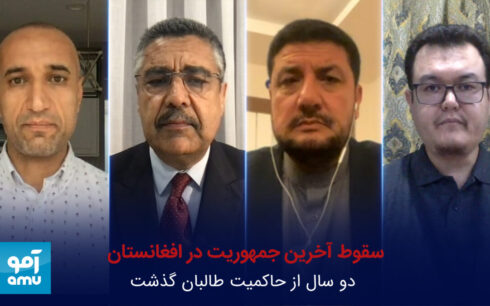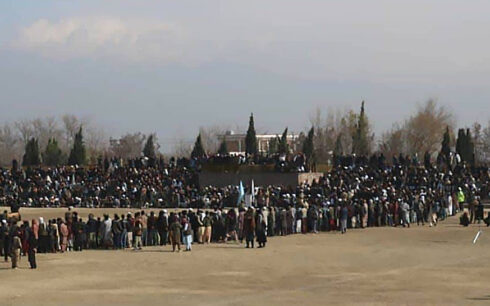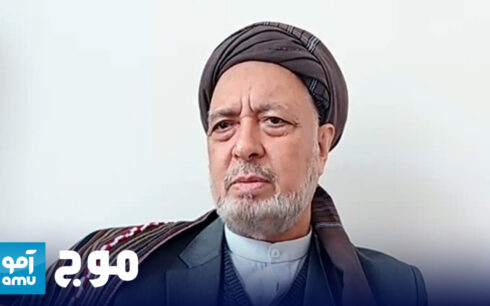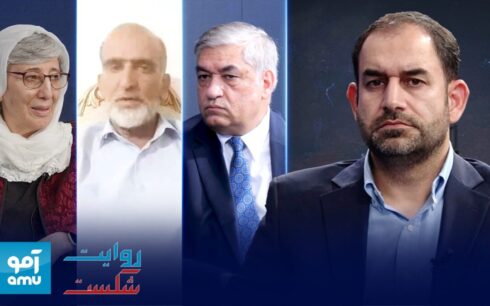In a collective statement issued on Tuesday, at least 10 international human rights organizations strongly denounce the continued and escalating gross human rights violations committed by the Taliban, particularly targeting women and girls, and express concern over the lack of a robust international response, two years after the Taliban’s takeover of Afghanistan on August 15, 2021.
“Throughout the past two years, the Taliban has instituted increasingly oppressive policies, particularly affecting women, girls, and religious and ethnic minorities, which starkly contravene Afghanistan’s obligations under international human rights law,” the joint statement declares.
The statement further highlights that policies restricting women and girls from education, work, freedom of movement, and access to public spaces and services have encountered widespread condemnation. A June 2023 report by the UN Special Rapporteur on the human rights situation in Afghanistan and the UN Working Group on Discrimination Against Women and Girls described the Taliban’s treatment of women and girls as potentially amounting to “gender persecution”—a crime against humanity—possibly falling under the category of “gender apartheid.”
The joint statement emphasizes the courageous endeavors of activists, especially women, who persistently protest Taliban policies within Afghanistan despite immense personal risks. In response, the Taliban subjects them to physical violence, raids, arbitrary arrests and detentions, torture, enforced disappearances, and attacks on their families.
“As global attention to the crisis wanes and the Taliban’s human rights violations become normalized in the eyes of the international community, our organizations continue to document crimes under international law and other grave human rights abuses,” the statement asserts.
It also expresses deep concern for the safety of human rights defenders currently held by the Taliban.
The statement highlights specific cases, including Matiullah Wesa, an advocate for education rights, who was arrested and detained arbitrarily on March 27, 2023, and Rasool Parsi, a university lecturer, Islamic scholar, and civil society activist, imprisoned since March 6, 2023. Limited internal safeguards and legal protections exacerbate the risks faced by those at risk, as Taliban actions often disregard established legal frameworks or render them ineffectual.
While some human rights defenders at risk have fled Afghanistan in the past two years, numerous others remain trapped and in hiding, left with minimal recourse for safety. Those who sought refuge in neighboring countries face uncertainty, potential expulsion, financial turmoil, and the looming threat of persecution upon their return to Afghanistan. Additionally, the statement points out that host countries such as Iran, Turkey, and Pakistan pose their own threats, encompassing arrest, violence, extortion, deportation, and restricted access to essential services, including healthcare and education.
The challenging situation within Afghanistan is compounded by a humanitarian crisis, with a staggering 97% of the population now living in poverty, a stark increase from 47% in 2020. UN data reveals that more than half of the nation’s populace—28.8 million people—requires humanitarian aid for survival, while 3.2 million children and 800,000 pregnant and breastfeeding women grapple with malnutrition. While significant aid reductions have disproportionately impacted Afghan citizens rather than the Taliban, the Taliban’s prohibition of women humanitarian workers from engaging with non-governmental organizations and the UN has hindered essential support, particularly for women-led households.
The joint statement underlines the need to exert pressure on the Taliban to cease violations and repression, holding them accountable for alleged crimes under international law. Notably, the statement calls for investigation into whether gender persecution against women and girls—potentially amounting to a crime against humanity—has transpired.
The organizations underscore the importance of amplifying the voices of individuals within Afghanistan and those who have fled the nation, advocating for an end to grave rights violations, justice, and redress. To this end, the statement urges the International Criminal Court prosecutor to ensure investigations and prosecutions address the broader patterns of criminal behavior across all parties involved in Afghanistan’s armed conflicts. This includes allegations against the Taliban concerning women and children, aligning with the court’s Policies on the Crime of Gender Persecution and Children. Additionally, third-party judicial authorities should explore the possibility of pursuing criminal cases based on the principle of universal jurisdiction, in accordance with national laws.
In response to Taliban violations, the international community is urged to exhibit greater consistency and efficacy, pushing for an immediate halt to violent reprisals and the release of arbitrarily detained individuals. The statement also advocates for a more robust accountability mechanism to investigate and collect evidence related to human rights abuses. Furthermore, the mandate of the Special Rapporteur on the situation of human rights in Afghanistan should be renewed and fortified with additional resources to sustain a rigorous focus on the human rights landscape. For Afghan individuals in transit or neighboring countries, governments are called upon to enhance protective measures, which include ceasing deportations and swiftly expanding and advancing resettlement programs for vulnerable Afghan populations to third-party nations.
Lastly, the statement reinforces that as de-facto authorities, the Taliban remain accountable for Afghanistan’s ratified international treaties, and thus are obligated to uphold the obligations outlined in these international human rights and humanitarian treaties. The international community is urged to adopt a united stance, firmly asserting that justice, accountability, and reparation for all severe human rights violations within Afghanistan are the sole acceptable outcomes.
The statement has been signed by Amnesty International, FIDH – International Federation for Human Rights, Freedom House, Freedom Now, Front Line Defenders, Human Rights Watch, MADRE, Urgent Action Fund – Asia & Pacific, Women’s International League for Peace and Freedom, and World Organisation Against Torture (OMCT).





